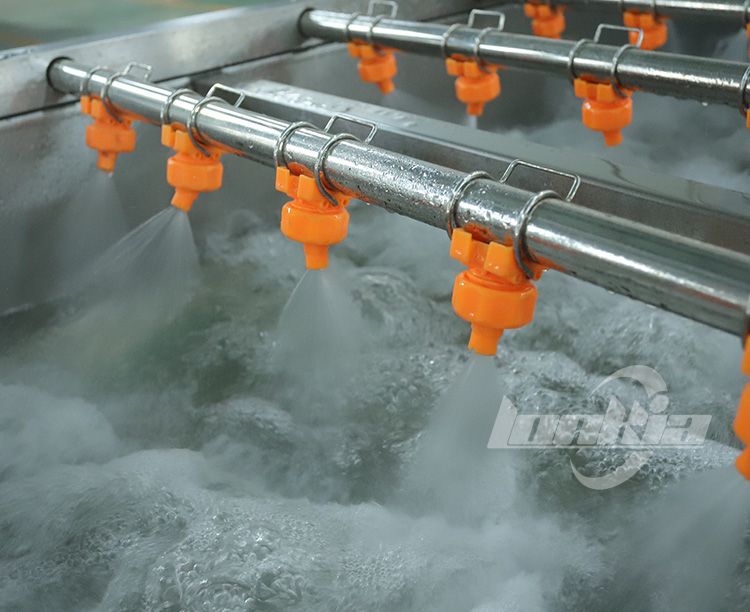Food safety is a top priority in the fruit and vegetable processing industry. With increasing regulations from authorities such as the FDA, HACCP, and global GAP certifications, processors must take extra measures to ensure produce is free from contaminants. One of the most effective tools to support this goal is the fruit and vegetable washing machine.
In this article, we explore how this specialized equipment can help your business meet food safety compliance standards while improving efficiency and hygiene.
1. Removes Soil, Pesticides, and Biological Contaminants
Fresh produce often carries visible dirt, pesticide residues, and invisible biological threats such as bacteria and parasites. A professional washing machine provides a multi-stage cleaning process, including:
High-pressure spraying
Bubble agitation
Ozone or UV sterilization (optional)
These features significantly reduce microbial loads and chemical residues, making your products safer for consumption and ready for further processing or packaging.
2. Reduces Human Handling and Cross-Contamination
Manual washing introduces multiple hygiene risks. Improper handling, inconsistent cleaning, and unsanitized environments can lead to cross-contamination. An automated washing machine:
Minimizes contact between workers and food
Maintains a controlled, enclosed washing environment
Uses clean, filtered, or circulating water systems
This greatly improves hygiene consistency across batches and aligns with Good Manufacturing Practices (GMP).

3. Supports HACCP and FSMS Implementation
Food safety certifications like HACCP (Hazard Analysis Critical Control Points) or ISO 22000 require traceable, documented control of every step in the production line. A vegetable and fruit washing machine helps you:
Establish a defined control point for raw material sanitation
Log wash times, chemical concentrations, and water temperatures
Meet key requirements for food safety audits
Some machines also offer digital monitoring systems, aiding recordkeeping and traceability.
4. Facilitates Allergen Control and Segregation
In mixed-production environments, allergen cross-contact is a critical concern. Washing machines allow for:
Quick product changeovers with CIP (clean-in-place) options
Dedicated wash cycles for allergen-containing produce
Separate tanks or zones to avoid cross-contamination
This not only enhances safety but also protects labeling accuracy and brand reputation.
5. Improved Compliance with Global Food Export Standards
For businesses exporting fresh-cut or processed fruits and vegetables, meeting global food safety requirements is essential. Many countries enforce strict rules regarding microbial counts and pesticide residues. A fruit and vegetable washing machine:
Ensures higher sanitary washing standards
Allows integration with chlorine or ozone for added disinfection
Reduces rejection rates and increases export success
6. Consistent and Documented Sanitation Process
Regulators increasingly demand standardized and documented sanitation procedures. With a fruit and vegetable washing machine, you can:
Maintain repeatable and validated cleaning cycles
Monitor wash parameters in real-time
Archive reports for audits and inspections
This consistency helps prove compliance during inspections and reduces the risk of penalties or recalls.
Conclusion
Investing in a fruit and vegetable washing machine isn’t just about improving efficiency—it’s a vital step toward achieving and maintaining food safety compliance. Whether you're processing leafy greens, root vegetables, or whole fruits, the right machine can help protect consumers, meet legal requirements, and boost your credibility in both local and global markets.
✅ Need help selecting the right washing machine for your compliance goals? Contact our team to get expert recommendations tailored to your production needs.

